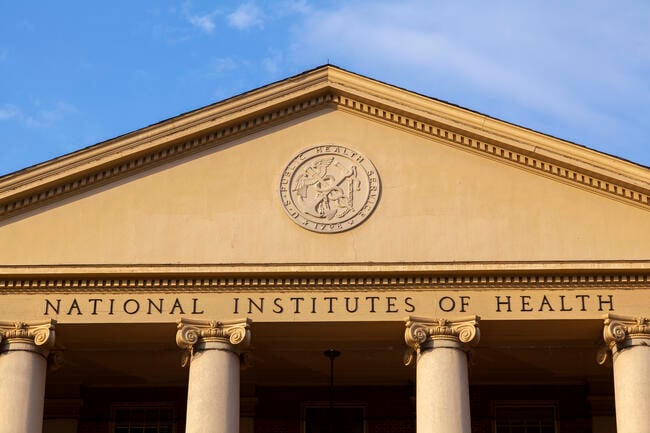You have /5 articles left.
Sign up for a free account or log in.

Paused grant reviews have tied up billions in research funding since January.
Grandbrothers / Getty Images
Months after the National Institutes of Health paused key grant-review meetings that are required to approve funding, those meetings are now steadily getting back on track.
As STAT reported last week, the resumption is a sign that the NIH—which has so far in 2025 awarded about $2.8 billion less than usual at this point over the past five years—is beginning to restore the flow of funding for biomedical research at universities, medical colleges and other research institutions.
Each year, thousands of university scientists apply for NIH grants to fund their research, and they have to go through a rigorous peer-review process before they get funded. First, a study section made up of subject matter experts reviews the applications. In order to receive funding, a recommended project has to get final approval by an advisory council from one of the NIH’s 23 institutes and centers with peer-review offices.
But in the first days of President Donald Trump’s second term, the NIH paused both scheduled study sections and advisory councils. In response, scientists raised alarm that tying up NIH grant funding for any length of time could disrupt ongoing, time-sensitive clinical research.
Some study section meeting notices began appearing on the Federal Register by late February, but advisory councils remained paused. And that meant that funding for new studies was still blocked from going to scientists, jeopardizing “lifesaving studies and clinical trials that, absent this interruption, NIH would have approved,” Lizbet Boroughs, associate vice president for government relations and public policy at the Association of American Universities, told Inside Higher Ed back in early March.
Days later, during Jay Bhattacharya’s confirmation hearing to become NIH director, Democratic senator Maggie Hassan of New Hampshire asked if he’d “immediately restart all NIH academic review committees and get all appropriated money out the door?”
“Absolutely,” replied Bhattacharya, who was later confirmed. “My job would be to make sure that those fundamental scientific meetings and other activities happen.”
And it appears Bhattacharya, who officially took the helm of the $47 billion agency earlier this month, is delivering—to some degree—on that promise.
Advisory council notices began reappearing on the Federal Register in mid-March. Last week, the advisory councils to the National Institute of Neurological Disorders and Stroke and the National Center for Complementary and Integrative Health held their meetings, STAT reported. However, both of those meetings were held virtually, closed to the public and abbreviated; it’s also unclear if the councils reviewed or approved any grants.
Carrie Wolinetz, a science and health policy consultant who worked for the NIH between 2015 and 2023, said in an email to Inside Higher Ed that the funding approval portions of advisory council meetings are typically held in closed session, “so it will be difficult to glean much specific about the volume of awards to be made or timelines of funding.” But the simple fact that councils are meeting and reviewing awards “is an encouraging sign.”
She added that advisory councils also present an opportunity for council members, who are external community representatives, to ask NIH leaders questions in open session.
“That will be an opening for agency leaders to provide a status update on pending awards, changes in process or some indication that NIH has returned to more of a ‘business as usual’ operation,” she wrote.
Jeremy Berg, who directed the National Institute of General Medical Sciences from 2003 to 2011, said in an email that he’s also encouraged by the resumed advisory council meetings.
“I have heard both from Advisory Council members and applicants that everything seems to have proceeded smoothly and normally,” he said, referring to the two advisory councils that met last week. As for those meeting in the near future, Berg said he’s “hoping that they go smoothly as well.”
An advisory council for the National Center for Advancing Translational Sciences is also scheduled to meet Thursday. And according to the Federal Register, about two dozen additional advisory council meetings are also scheduled in the coming months, including for the National Institute of Arthritis and Musculoskeletal and Skin Diseases, the National Institute of Diabetes and Digestive and Kidney Diseases, and the National Institute of Environmental Health Sciences.
Boroughs, of the AAU, said she’s waiting to see what happens next.
“Historically, within a few weeks of an Institute’s Council meeting, NIH staff send ‘Notices of Award’ to the [principal investigator] and their university,” she said in an email. “When AAU becomes aware of numerous ‘Notice of Award’ messages being sent, that will indicate that NIH is on a pathway to fund new research.”




